
13 Social Media Content Creator Success Stories [2025]
Looking to make your mark on digital platforms? Consider being a social media content creator. This business revolves around producing engaging and eye-catching content for various social media channels like Instagram, TikTok, and YouTube.
You'll create posts, videos, and stories that resonate with an audience, growing your personal brand or helping businesses enhance their online presence. The key is consistency and authentic engagement.
The demand for compelling content is high, as companies increasingly shift their marketing strategies toward social platforms. By mastering digital tools and understanding audience preferences, you can carve out a profitable niche.
The journey involves research, content planning, and a bit of trial and error. But the potential to build a significant online following and secure lucrative partnerships is a strong motivator for those willing to put in the effort.
In this list, you'll find real-world social media content creator success stories and very profitable examples of starting a social media content creator that makes money.
1. Ignite Social Media ($6M/year)
In 2006, Jim Tobin had an epiphany while sitting in church and the idea of a social media agency was injected into his brain. Despite the lack of social media platforms at the time, Tobin launched Ignite Social Media and became one of the first agencies in the space. Since then, the company has grown and attracted clients through their blog and website, focusing on client success and sharing knowledge.
How much money it makes: $6M/year
How much did it cost to start: $100K
How many people on the team: 37


Learn how the founder of Ignite Social Media launched the first-ever social media agency in the US, attracting big-name clients like Microsoft and Intel through organic leads and referrals, and stay on top of the constantly changing industry by focusing on one area of marketing.




2. Justin Welsh ($3.8M/year)
After handling loads of stress as an SVP of sales, Justin decided to step down from his job and start a consulting business. He started creating digital content from there on, and have been moving forward ever since, releasing courses, building a massive following, and double down on his solopreneurship efforts.
How much money it makes: $3.8M/year
How much did it cost to start: $1K
How many people on the team: 0

Solopreneur Justin Welsh built a knowledge business through social media with over $2M in annual revenue and no full-time employees, offering flagship digital courses with a monthly revenue of $80K and $45K respectively, through LinkedIn and Twitter growth as well as organic and affiliate marketing.




3. Coffee and Contracts ($3M/year)
Haley Ingram, the founder of Coffee and Contracts, came up with the idea for her business while working as a real estate agent. After experiencing the power of social media marketing firsthand and receiving requests for advice from other agents, she saw an opportunity to create a subscription-based marketing toolkit tailored specifically for real estate professionals. In just two years, Coffee and Contracts has helped over 7,000 agents build their brands and currently generates an impressive average monthly revenue of $165,000.
How much money it makes: $3M/year
How much did it cost to start: $500
How many people on the team: 3
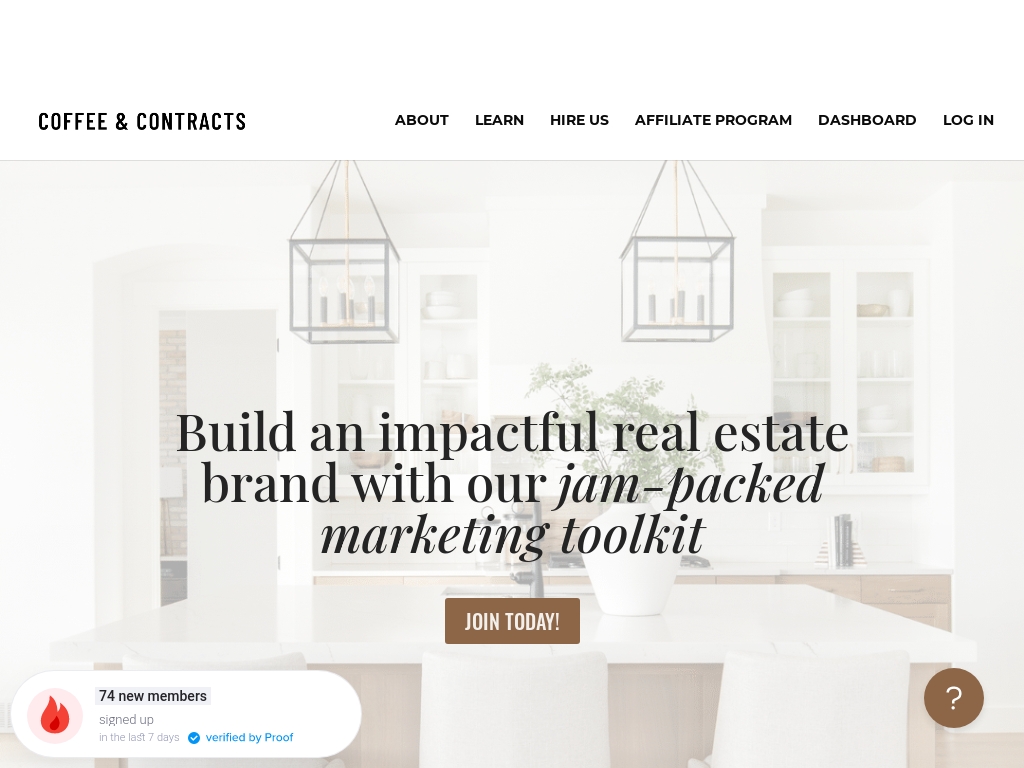

Coffee and Contracts is a digital marketing subscription service for real estate professionals that has helped over 7,000 members in just two years, with an average monthly revenue of around $165,000, and has grown at a rate of about 5% each month through organic traffic from Instagram and word of mouth.




4. The Creative Collective ($2.4M/year)
Yvette Adams, founder of The Creative Collective, came up with the idea to start her marketing agency out of both ambition and necessity. With a diverse background in marketing and media, she saw the potential in offering a one-stop-shop for creative services on the Sunshine Coast. She began by offering her services to people she knew and quickly gained clients and referrals, positioning her agency as a pioneer in the industry.
How much money it makes: $2.4M/year
How much did it cost to start: $0
How many people on the team: 20

The Creative Collective is a full-service marketing agency that has grown its revenue and doubled its team in the past year, with around 100 active clients and responding to an average of 160 inquiries each month.




5. Goodo Studios ($1.01M/year)
Matthew Gattozzi, founder of Goodo Studios, came up with the idea for his content creation studio after his dance career was cut short by a back injury. With just a cheap camera and a laptop, he started emailing businesses in Austin and eventually landed his first client. Now, he focuses on providing exceptional service to clients and has built a strong reputation through referrals, networking on Twitter, and writing a weekly newsletter. Goodo Studios is now expanding its team and aims to tighten its systems to offer even better service in the future.
How much money it makes: $1.01M/year
How much did it cost to start: $4K
How many people on the team: 12
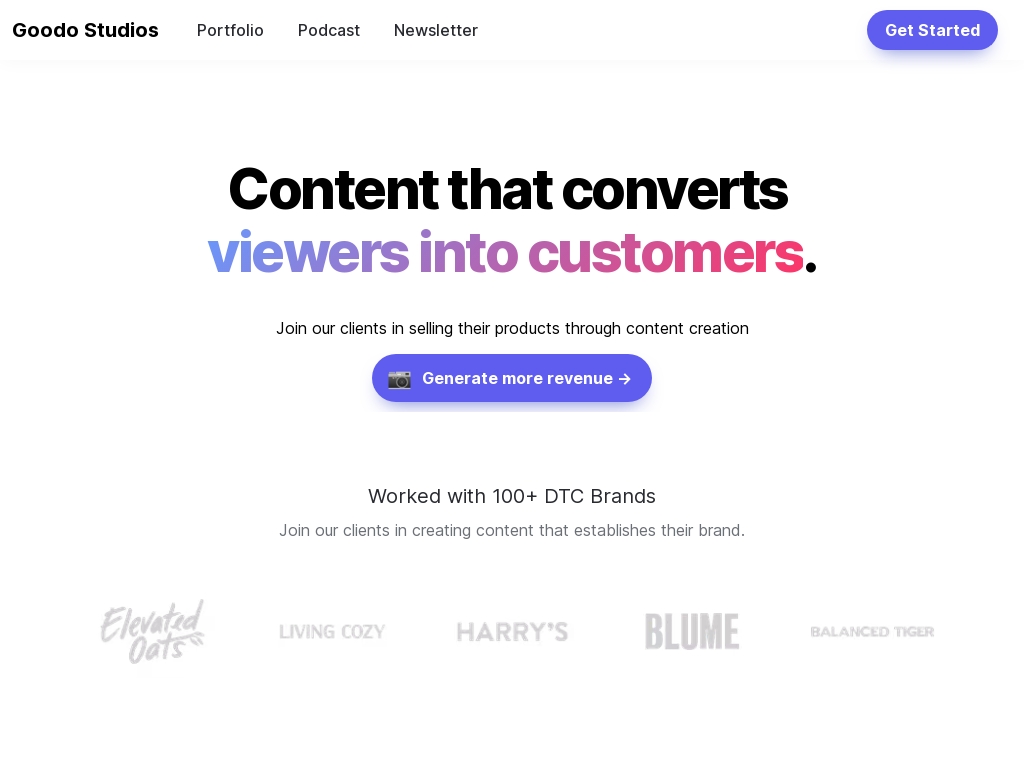

Goodo Studios, a content creation studio that creates photos and videos for direct-to-consumer brands, started small with a cheap camera, a laptop, and Adobe Creative Cloud, sending hundreds of emails to businesses before landing their first client, Briggo, and is now doing approximately $25k per month and is scaling up by building a team and tightening their systems.




6. Postoplan.app ($840K/year)
Alex Bozhin, founder & CEO of Postoplan, came up with the idea for his automated marketing platform for social media and messengers after working with various social media instruments in his marketing agency and feeling that something was missing. He saw an opportunity to revolutionize the market and create his own instrument for working with social media. After months of research and interviews with potential clients, he launched Postoplan and attracted over 1,000 users, including paying ones, through a Product Hunt launch.
How much money it makes: $840K/year
How much did it cost to start: $11K
How many people on the team: 27
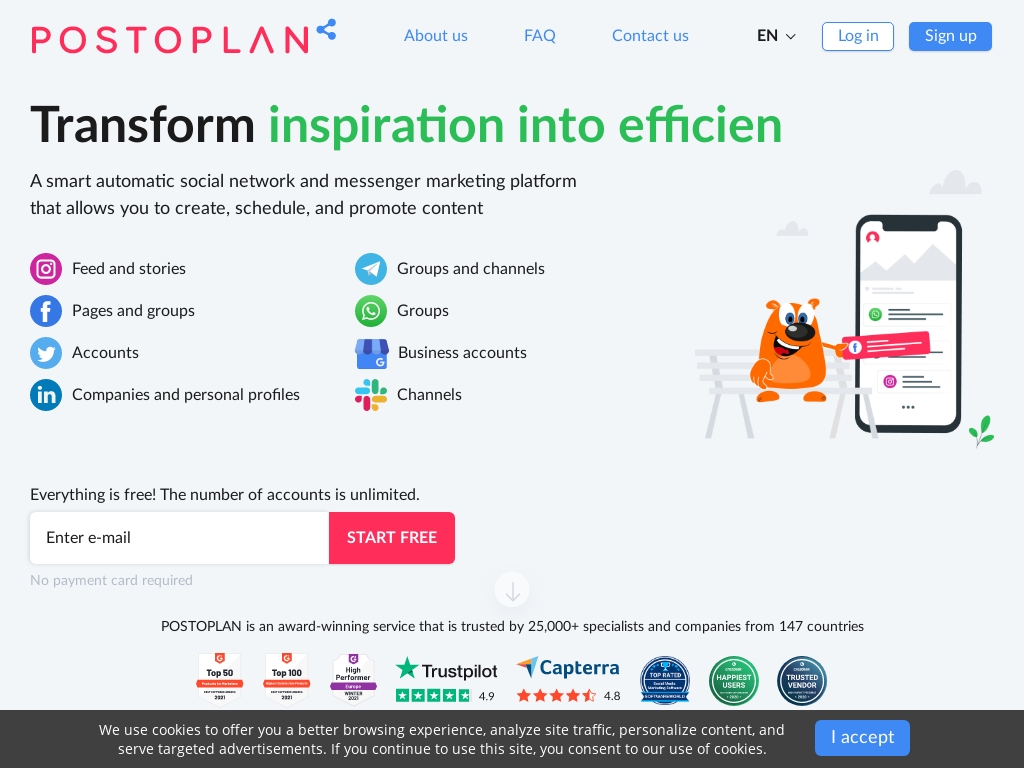

Postoplan, an automated marketing platform for social media and messengers, has reached over $1M in revenues and boasts 112,000 users in 147 countries with an average annual revenue growth of +25% MoM, making it among Estonia's Top 5 most promising startups in 2020, a finalist for the Global Business Owners Startup Awards in 2021, and placing 2nd at Seedstars Tallinn in 2020, all while being the only marketing platform that enables automated posting to WhatsApp.




7. Content-Whale Private Limited ($750K/year)
Vaibhav Kishnani, an engineer turned writer, came up with the idea for Content-Whale after noticing the unprofessional conduct in the Indian content market. With just Rs. 2,500 ($35) in capital, he started the content agency which now generates a revenue turnover of Rs. 4 crores ($514,000) and serves clients like Quikr and The Boston Consulting Group.
How much money it makes: $750K/year
How much did it cost to start: $35
How many people on the team: 30


Content-Whale, a content curation agency, has achieved a Rs. 4 crore ($514k/year) turnover 4-5 years after being started with just Rs. 2500 ($35), and has a pool of more than 500 writers, aiming to become a market leader in the global content market.




8. Video Jaguar ($384K/year)
Since launching Video Jaguar, Tim Sumer has focused on driving attention to his website and perfecting his video creation software. He utilized his digital marketing firm, USA Marketing Pros, to design and promote the website. He also leveraged his client base by offering a 30-day free trial in exchange for referrals. By showcasing the video templates in individual blog posts and utilizing SEO tactics, Tim was able to attract customers and gain visibility.
How much money it makes: $384K/year
How much did it cost to start: $18K
How many people on the team: 5
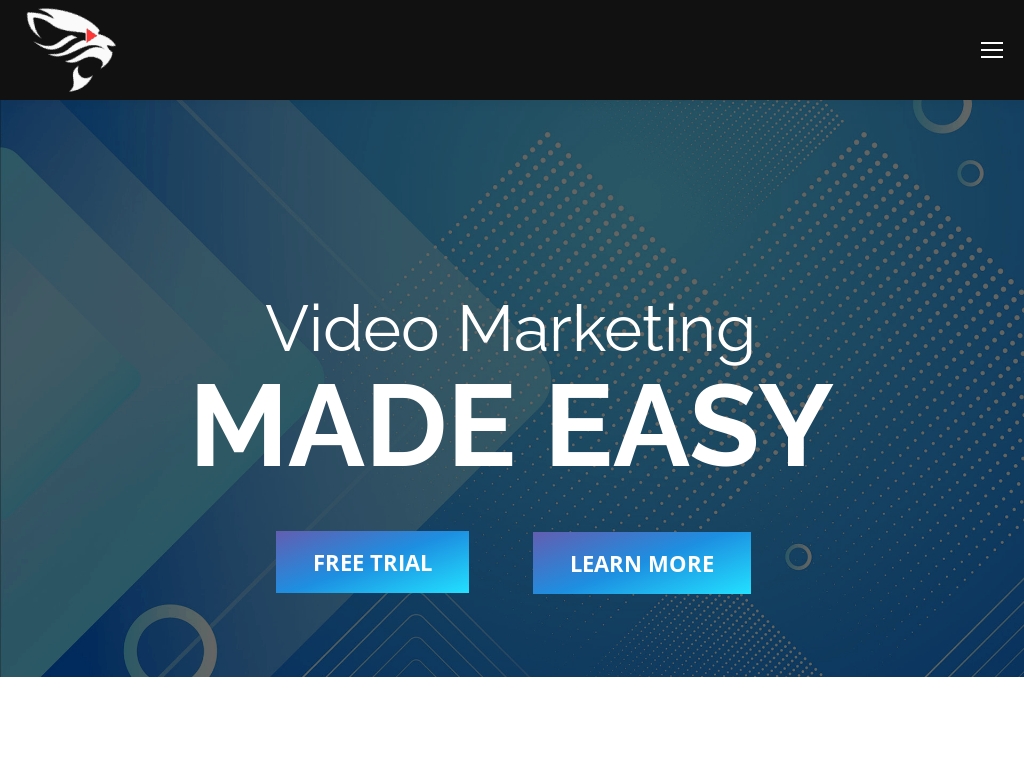

Video Jaguar is an all-in-one video marketing software that has generated $25,038.74 in sales from August-December 2019, $188,672.22 in sales in 2020, and is now doing $32,911.77/month in sales with an expected $700K in sales in the current year while boasting a gross margin of 80%.




9. Repurpose Pie ($72K/year)
Ash, a Chartered Accountant turned content entrepreneur, launched Repurpose Pie after his co-founder paid $500/month to a video editor for converting tweets to videos. Spotting a lucrative pain point, the team built software to automate this process, achieving $75,000 annual recurring revenue within a week.
How much money it makes: $72K/year
How many people on the team: 2
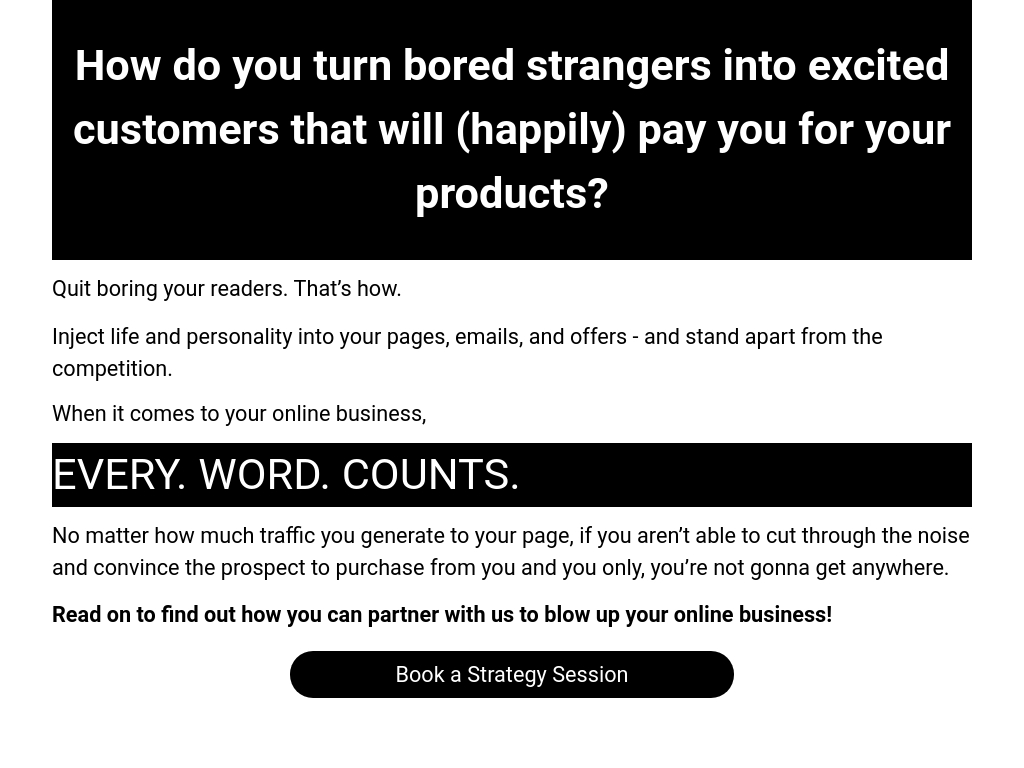

Repurpose Pie is a text-to-video content repurposing software for Twitter creators that automatically converts text posts into videos and posts them to TikTok, YouTube, and soon Instagram, helping creators reach new audiences and increase engagement without putting in extra effort.




10. Code Story ($60K/year)
Noah Labhart, a startup founder and CTO, came up with the idea for his podcast, Code Story, after realizing there was a lack of tech and startup-focused shows like How I Built This. With a passion for solution architecture and a desire to share the stories of tech visionaries, Labhart launched Code Story and has since gained over 80k downloads and an average of 1,000 downloads per episode.
How much money it makes: $60K/year
How much did it cost to start: $1K
How many people on the team: 0
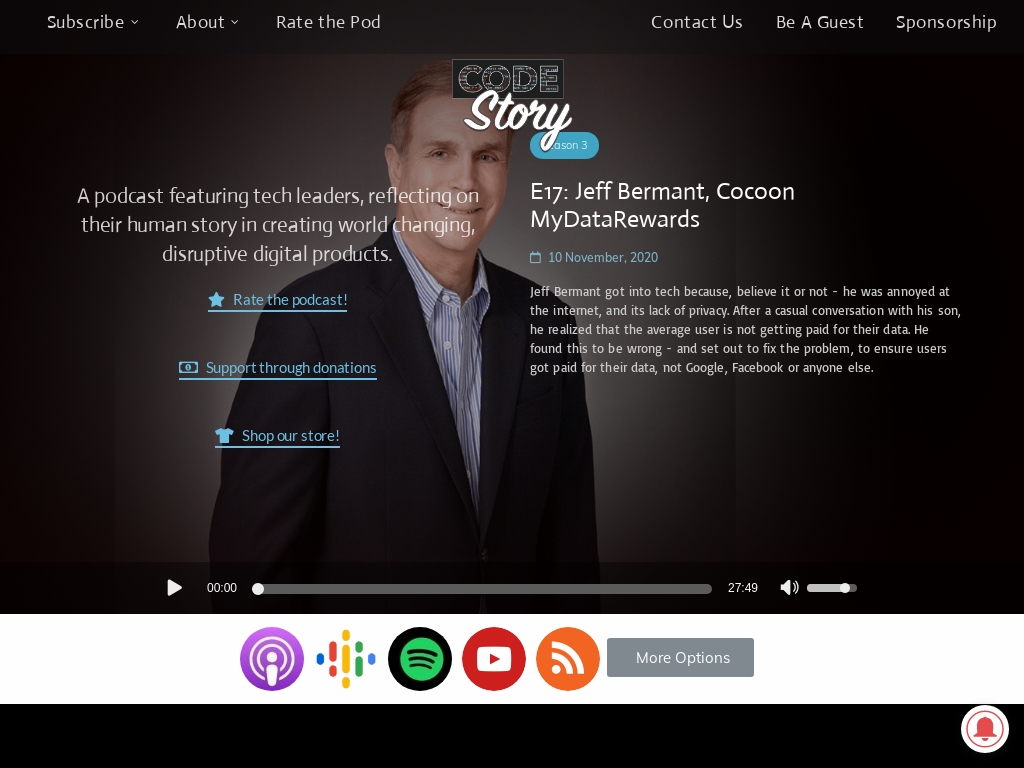

Noah Labhart's podcast, Code Story, has been downloaded over 80k times and generates an average of $1k a month in revenue through several ad deals with top tech executives and companies.




11. Small School ($42K/year)
Kevon Cheung, the founder of Public Lab, came up with the idea for his business after leaving his CEO role at a funded SaaS company and feeling lost about his next step. He wanted to build a presence and voice online to create a sustainable business while also having more time and flexibility for his family. He started documenting his journey and sharing his learnings on Twitter and stumbled upon the concept of "Building in Public," which resonated with him. Realizing there weren't many resources to help entrepreneurs who wanted to build in public, he decided to fill that gap and began writing a guide in public, eventually launching the Building in Public Guide to great success.
How much money it makes: $42K/year
How much did it cost to start: $200
How many people on the team: 0
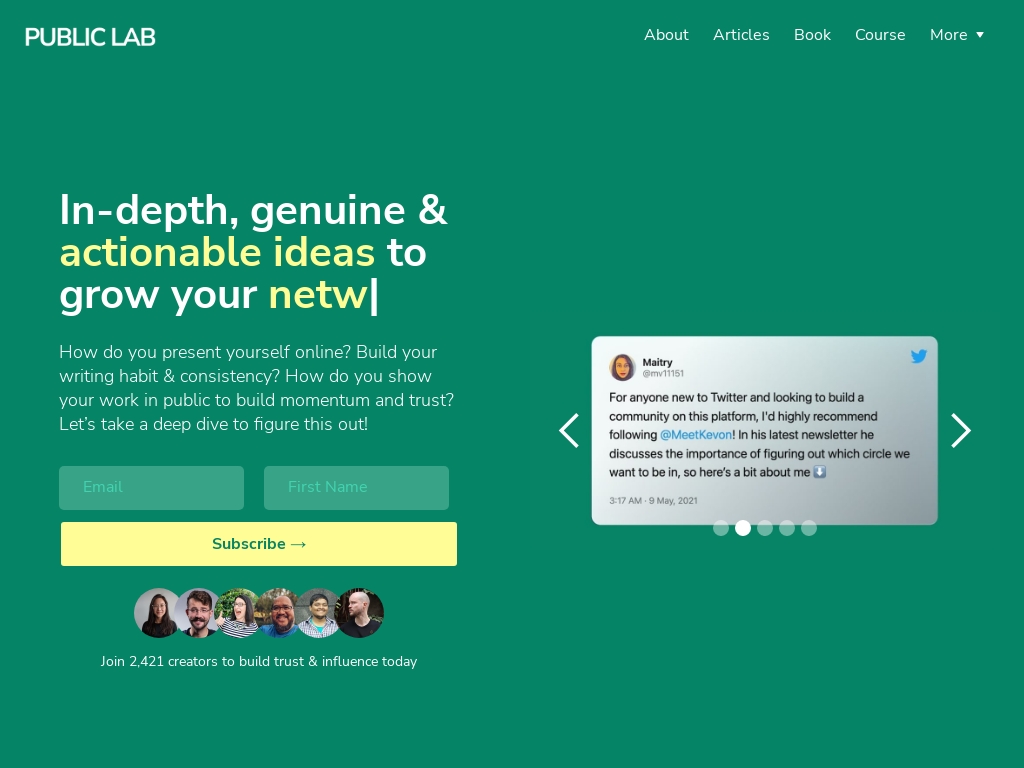

Public Lab founder Kevon Cheung shares his journey of starting his online business with no niche, network, or followers, and how he utilized the "Building in Public" framework to grow his business to a mid-5-figure revenue and establish a trustworthy brand by focusing on honesty, transparency, and helpfulness.




12. Predis ($12K/year)
Three founders with experience in tech and data science came up with the idea for PredisAI. After selling their previous company, they wanted to use their data science expertise to create a product that could predict social media post performance and provide recommendations for improvement. They validated the idea by speaking with social media agencies, influencers, and business owners, and now have 50 daily active users.
How much money it makes: $12K/year
How much did it cost to start: $10K
How many people on the team: 3
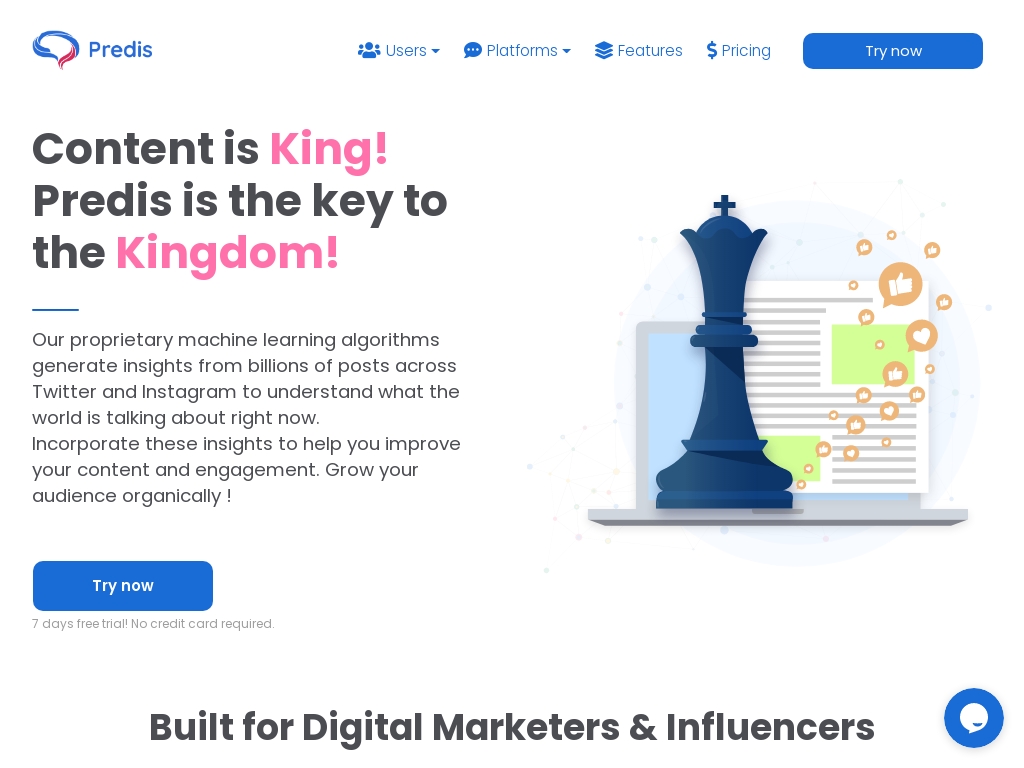

Predis.ai has developed an AI-based tool to improve social media posts' engagement, with their unique technology predicting engagement and suggesting improvements, and they have currently gained 50 daily active users.




13. Neuwly ($1.2K/year)
Steve Christensen came up with the idea for Neuwly Live after realizing the power of connecting people through knowledge and inspiration. The initial concept of a bucket list tracker evolved into a platform for discovering and sharing experiences. When the COVID-19 pandemic hit, they pivoted to a virtual approach, launching a marketplace of knowledge and ideas.
How much money it makes: $1.2K/year
How much did it cost to start: $100K
How many people on the team: 0
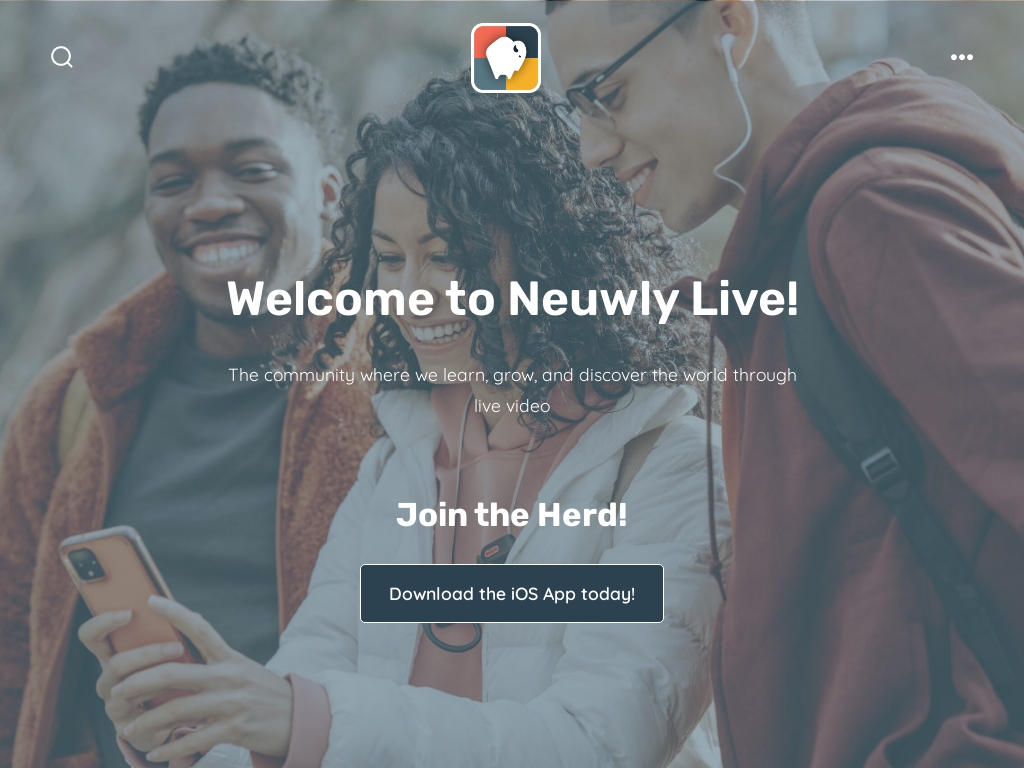

Neuwly Live is a marketplace of knowledge and ideas that allows people to learn and advance together using live video, which has gained over 300 downloads in just one month.





Download the report and join our email newsletter packed with business ideas and money-making opportunities, backed by real-life case studies.

Download the report and join our email newsletter packed with business ideas and money-making opportunities, backed by real-life case studies.

Download the report and join our email newsletter packed with business ideas and money-making opportunities, backed by real-life case studies.

Download the report and join our email newsletter packed with business ideas and money-making opportunities, backed by real-life case studies.

Download the report and join our email newsletter packed with business ideas and money-making opportunities, backed by real-life case studies.

Download the report and join our email newsletter packed with business ideas and money-making opportunities, backed by real-life case studies.

Download the report and join our email newsletter packed with business ideas and money-making opportunities, backed by real-life case studies.

Download the report and join our email newsletter packed with business ideas and money-making opportunities, backed by real-life case studies.














